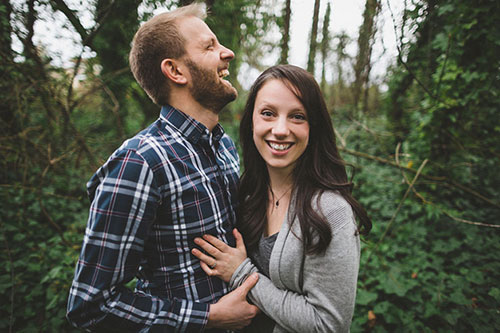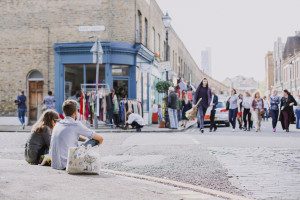We are arguably at a time of social change in history like none other. The age of women’s empowerment is increasing and has been for the last several decades. Women’s position in our society has changed drastically. Women are more self accepting and are more accepted in various arenas, such as the workforce, than ever. Not just here in this country, but in most parts of the world. Any significant change in men? Not much. Not a lot of change going on. Right now, I would look at it as playing more catch up with women than anything. And it’s not that this is a good or bad thing, so before some of you get defensive, hear me out. Women and their roles have changed significantly while men have not and it’s affected relationships, marriages, and family life.
It’s what we’re “not taught”
So, what happened? Why are men struggling to keep up with all of this change going on? There are a few possible reasons. A big one is that in our society we still look at expressing emotions and feeling as a weakness. This isn’t just men, but it’s also the women in their lives expecting them to maintain this false sense of bravado. Men feel a tremendous amount of pressure to maintain the role as provider and fearless protector. Another reason is that we weren’t taught to give ourselves space to be vulnerable and emotionally expressive. Most of us men were never modeled this from our parents and our fathers. But before we go and blame dad, we have to realize that he wasn’t modeled vulnerability from his father either. “So what’s the big deal?”, you are probably saying. Why do you need to be more emotionally sensitive or vulnerable? Well, if you’re young, single, and not in an intimate relationship of any sort, you probably don’t need to be. However, most of us men end up falling in love, thinking we have the perfect relationship, getting married, having kids, and then running into problems down the road. A lot of us don’t know how to connect in ways that our partners and kids need us to. There’s more to being a provider than bringing home the paycheck.
Taking control of the relationship
As a therapist I see couples who are having relationship issues and there is one common dynamic 9 out of 10 times. The woman is dragging the man into counseling because she can’t get through to him on many levels. These are areas such as shared common interests and goals, and intimacy both physically and emotionally. The woman has found she is empowered enough to make a move to get her and her partner in counseling and now she’s pissed and wants change. This is hard change for the man, however. This is a huge shift and it’s not like the man can all of a sudden learn new skills overnight. It takes coaching, patience, and vulnerability. She’s asking him to be open and vulnerable to receive change for the first time in many cases.
It didn’t take long for me in my relationship to see where old patterns of communicating weren’t working. It’s not that I was doing anything wrong, or intentionally wrong, it’s that I had not allowed myself to see past my perspective. Once I began to take some risks, both personally and inter-personally, and connecting with some male mentors my relationship with my wife changed in positive ways I could never imagine.
I actually enjoy working with dysfunctional couples. It’s not that I enjoy seeing their misery, it’s that I know what kind of positive changes are in store for the relationship. And as a man, it’s rewarding for me to see another man willing to allow himself to grow not only for his wife and kids, but also for himself.




LOVED, LOVED, LOVED this article.
Thanks!
My dad, God rest his soul, was an A-1 Example of the prideful, independent and aloof male. Even though his colon cancer spread to the rest of his body and he should have in a hospice for the last two or three months of his life, he insisted on staying in his home. Even after I had EMT’s come to transport him to the nursing home, despite the pain coursing throughout his frail body, Dad yelled and grabbed the door frame in a futile but fervent attempt to stay in his house.
He died less than 24 hours after being at the High Park nursing home. He never hugged me or to my knowledge any other male. He showed love by actions but never via words.
As I note in my first self-help book, “Overcome Any Personal Obstacle, Including Alcoholism, By Understanding Your Ego” — http://www.Lily.com/spotlight/Lee writer -‘- of the Seven Deadly Sins, PRIDE is the deadliest, especially for alcoholics. Males in general struggle with pride. It is pride that separates men from others by assuring them they can handle any situation by themselves. Successful therapy and self-improvement in general is all about deconstructing the house the Ego built.
Thanks for the comments. I’ll be sure to check out your book. You’re right in that pride is such a barrier to getting what we really want out of life and relationships.
Note: my book’s URL starts with lulu.com, not Lily.com. And yes, for me, pride is synonymous with evil and separation. Pride tends to separate us from potential sources of help. I watched my wife Amy commit a slow suicide via daily doses of cheap vodka as I too escaped reality via alcohol on a regular basis.
John– I’m at the beginning of this journey, and found your post (mostly your EXPERIENCE with this stuff!) very helpful today. Thanks for what you do and for taking the time to share all your insights.
Vulnerably being open about my feelings, at the very least, means I’m aware of them, which is starting to seem like an anomaly amongst men! Most of the time we walk around completely hidden. From our selves and others. Mostly I’m talking about emotionally and with our feelings.
If I’m vulnerably opening up, I probably have some measure of self-acceptance. At least more than the level of acceptance I had when I hid those things in the darkness!
Vulnerability used to seem like the ultimate weakness to me, but now I see it as a sign of strength. It’s like vulnerability is a sign that I’m no longer vulnerable (haha), because having a blind-spot is what’s REALLY vulnerable, we just don’t realize it.
Thank you again– Forrest
Wow! Thanks so much for your feedback, Forrest. Sounds like you are on a good track with seeing how vulnerability is a powerful aspect of who you are.